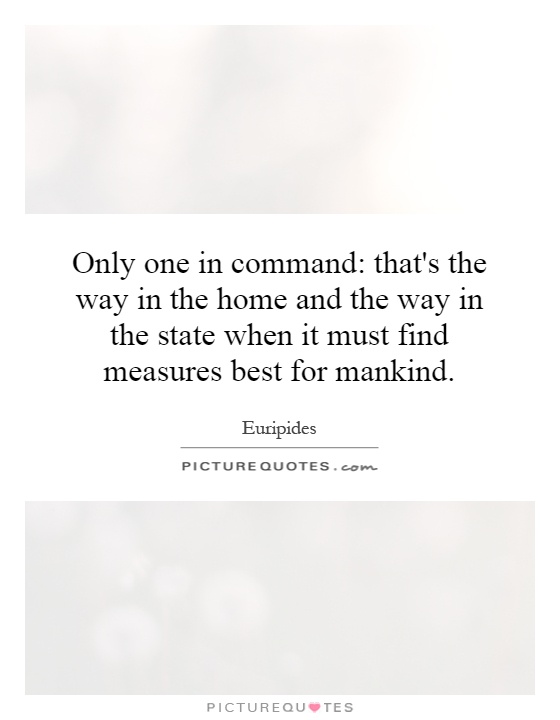Only one in command: that's the way in the home and the way in the state when it must find measures best for mankind

Only one in command: that's the way in the home and the way in the state when it must find measures best for mankind
In the ancient Greek play "Euripides," the concept of having only one in command is a recurring theme that is explored in various ways. The quote "Only one in command: that's the way in the home and the way in the state when it must find measures best for mankind" reflects the idea that a single leader is necessary in both the household and the state in order to make decisions that are in the best interest of the people.In the play "Euripides," we see examples of this concept playing out in different ways. In many of the tragedies written by Euripides, the main characters are often faced with difficult decisions that require strong leadership and decisive action. Whether it is a king making decisions for his kingdom or a father making decisions for his family, the idea of having only one in command is central to the plot.
One of the most famous examples of this theme in "Euripides" is the play "Medea." In this tragedy, the main character, Medea, is a woman who is betrayed by her husband, Jason. In order to seek revenge, she makes the difficult decision to kill her own children. This act of violence is a result of Medea taking matters into her own hands and acting as the sole leader in her own life. While her actions are extreme and morally questionable, they highlight the idea that sometimes a single leader must take charge in order to achieve a greater good.












 Friendship Quotes
Friendship Quotes Love Quotes
Love Quotes Life Quotes
Life Quotes Funny Quotes
Funny Quotes Motivational Quotes
Motivational Quotes Inspirational Quotes
Inspirational Quotes